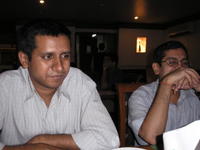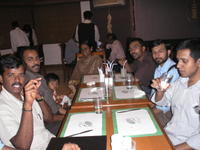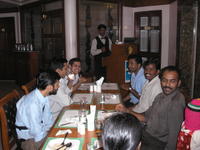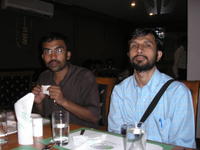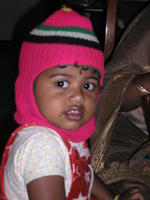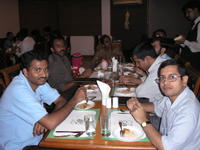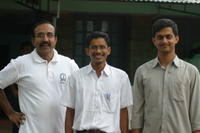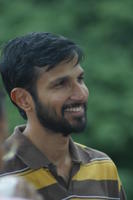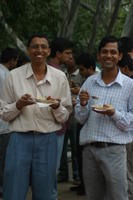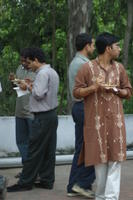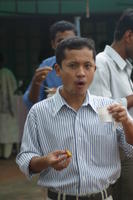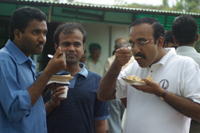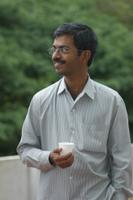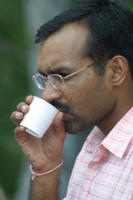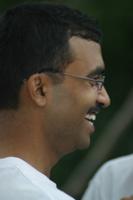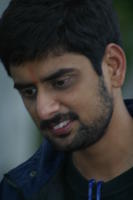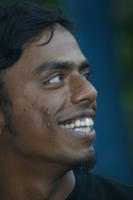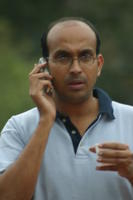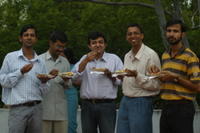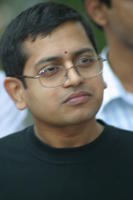Here are some fortune cookies about (and defining) Guru (thanks to Deep for the pointer). My favourite is the one about the guy in T-shirt and sandals. While we are at it, I should also tell you this: Once my computer told me, "You are an insult to my intelligence. I demand that you log-off immediately". And, my login id is guru:-)
Graphics blind the eyes.
Audio files deafen the ear.
Mouse clicks numb the fingers.
Heuristics weaken the mind.
Options wither the heart.
The Guru observes the net
but trusts his inner vision.
He allows things to come and go.
His heart is as open as the ether.
%
When the Guru administers, the users
are hardly aware that he exists.
Next best is a sysop who is loved.
Next, one who is feared.
And worst, one who is despised.
If you don't trust the users,
you make them untrustworthy.
The Guru doesn't talk, he hacks.
When his work is done,
the users say, "Amazing:
we implemented it, all by ourselves!"
%
When users see one GUI as beautiful,
other user interfaces become ugly.
When users see some programs as winners,
other programs become lossage.
Pointers and NULLs reference each other.
High level and assembler depend on each other.
Double and float cast to each other.
High-endian and low-endian define each other.
While and until follow each other.
Therefore the Guru
programs without doing anything
and teaches without saying anything.
Warnings arise and he lets them come;
processes are swapped and he lets them go.
He has but doesn't possess,
acts but doesn't expect.
When his work is done, he deletes it.
That is why it lasts forever.
%
When you overesteem great hackers,
more users become cretins.
When you develop encryption,
more users become crackers.
The Guru leads
by emptying user's minds
and increasing their quotas,
by weakening their ambition
and toughening their resolve.
When users lack knowledge and desire,
management will not try to interfere.
Practice not-looping,
and everything will fall into place.
%
If a guru falls in the forest with no one to hear him, was he really a
guru at all?
-- Strange de Jim, "The Metasexuals"
%
guru, n.:
A person in T-shirt and sandals who took an elevator ride with
a senior vice-president and is ultimately responsible for the
phone call you are about to receive from your boss.
%
guru, n:
A computer owner who can read the manual.
%
The Tao doesn't take sides;
it gives birth to both wins and losses.
The Guru doesn't take sides;
she welcomes both hackers and lusers.
The Tao is like a stack:
the data changes but not the structure.
the more you use it, the deeper it becomes;
the more you talk of it, the less you understand.
Hold on to the root.


